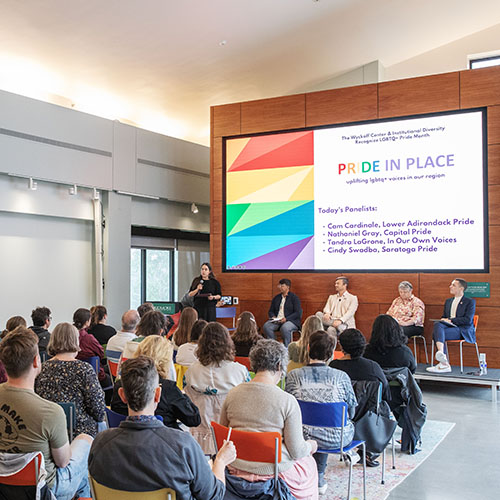Classical talk to explore ancient Greek mind-reading skills

Ruth Scodel
Homer, the blind poet of ancient Greece who gave the world The Iliad and TheOdyssey, was deeply interested in how people think about what others are thinking, feeling, and believing. According to internationally renowned classics scholar Ruth Scodel, Homer - that legendary creator of vivid large-scale scenes of battle, power, love, and honor - also "delights in representing interactions in which characters can avoid saying exactly what they mean because they know that their interlocutors know what they are thinking about."
How Homer shows the everyday mind-reading habits of his characters and exploits the similar skills of his audience will be the subject when Scodel presentsthe annual Classical World Lecture at Skidmore. Titled "Mind-Reading in Homer's Odyssey," the lecture will begin at 5:30 p.m. Monday, Feb. 15, in Emerson Auditorium in Palamountain Hall on the Skidmore campus. Admission is free and open to the public.
Scodel's talk will explore the ways in which characters read each other's unspoken thoughts, and understand those thoughts on the basis of how well they know each other.
The D. R. Shackleton Bailey Collegiate Professor of Greek and Latin at the University of Michigan and a former president of the American Philological Association,Scodel has published extensively on the epic poetry of Homer and the tragedies of Sophocles and Euripides. Her recent books includeListening to Homer: Tradition, Narrative, and Audience (University of Michigan Press, 2002), andEpic Facework: Self-presentation and Social Interaction in Homer(Classical Press of Wales, 2008), a tour de force study of how listeners received and understood Homer's epic poems.
Scodel explores Homer's works from the perspective of his audiences, who, long before the printed page, didn't read his work as contemporary audiences do but rather listened to it. "At the beginnings of Greek literature, Homer's audience is expected to appreciate psychology and self-control of a very high order," according to a Zavvi.com review of Scodel's work, adding that such ability speaks to "the general level of sophistication of the historic and prehistoric societies."
The annual Classical World Lecture at Skidmore, now in its 15th year, brings distinguished scholars to campus to speak to the community and, in particular, to students enrolled in the Classics Department's team-taught gateway course, "The Classical World." The College's departments of Classics and English, the Honors Forum and the First-Year Experience sponsor the lecture.


